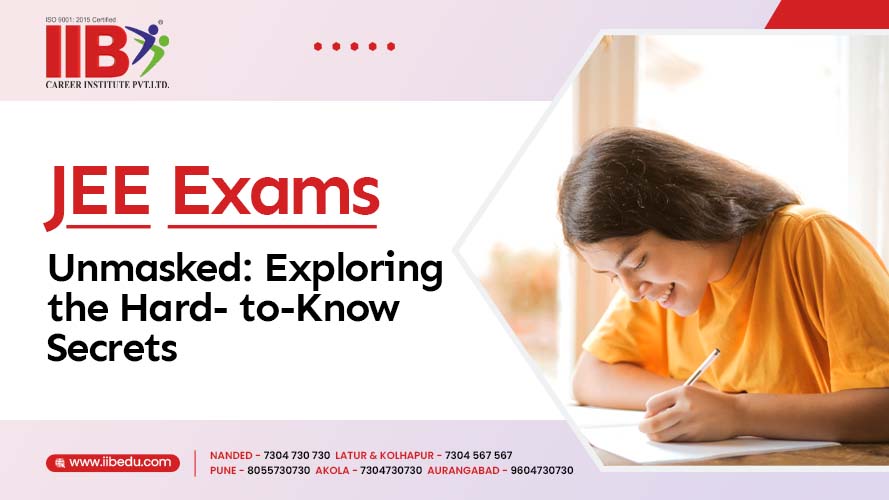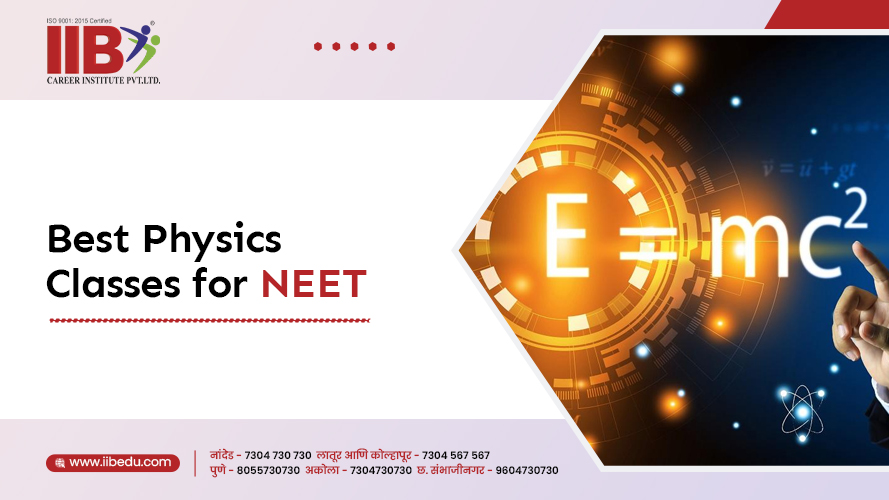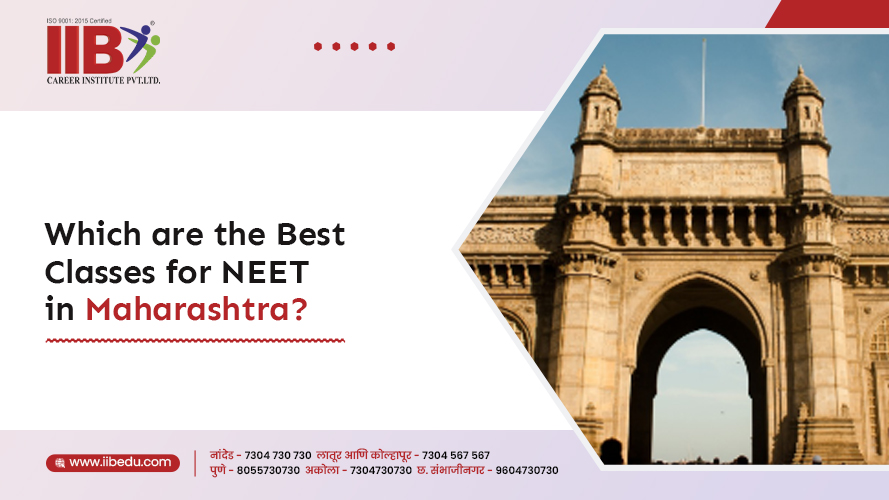
The Joint Entrance Examination, also known as JEE, is considered a vital milestone for prospective engineering and architecture students in India. The JEE exam is the entry point for admission to top-notch engineering colleges such as IITs, NITs, and other prestigious institutes in the country.
JEE relevance cannot be neglected as it is the major criterion for admission to these prestigious colleges, which are well-known for their academic quality and cutting-edge research worldwide. As a result, the JEE has become a watershed moment for the innumerable brains who dream of becoming an engineer or architects.

Unveiling the Secret of JEE
There are hidden features, subtleties, and techniques in the arena of JEE that are frequently overshadowed by the exam’s reputation for its competitive nature and high stakes. In this blog, we hope to uncover these lesser-known characteristics.
Beyond the tough appearance of JEE, there is a lot of information regarding—strategies for efficient preparation, disputing myths about the exam’s difficulty, and uncovering important resources that might help aspiring candidates. This voyage is intended to shed light on these hidden dimensions, providing JEE aspirants with information and clarity.
In this blog, we will delve into the JEE exam and learn the secrets that can help you in moving toward success in the exam.
Journeys Towards JEE
Preparing for the Joint Entrance Examination (JEE) is a difficult road that needs relentless dedication, unmatched focus, and courage. In addition to these, successfully passing the JEE requires a comprehensive method of learning. It necessitates constant planning, a firm mentality, and the capacity to flourish under pressure from rivals. However, the rewards in the form of a good engineering education and a bright future are incalculable for those who set out on this journey with tenacity and perseverance.
Understanding the JEE Exam Pattern
JEE is composed of two main exams JEE mains and JEE Advanced. JEE mains ensure your admission to engineering colleges across the country whereas mastering JEE Advanced helps to get admission to the top engineering colleges including IITs, NITs, and other govt. and private colleges.
Let us explore more about the JEE exam:
JEE Mains
JEE mains is organised twice a year typically in January and April. The exam consists of questions from physics, chemistry, and mathematics. The duration of the exam is three hours and it is the first exam for admission to the B.Tech. and B.E. program.
Subjects:
- Physics: This section evaluates a candidate’s understanding of physics concepts, theories, and problem-solving skills.
- Chemistry: It assesses knowledge in both physical and organic chemistry, with a focus on chemical reactions, equations, and properties.
- Mathematics: This section tests mathematical concepts, including calculus, algebra, geometry, and statistics.
Types of questions:
JEE Main features a mix of multiple-choice questions (MCQs) and numerical value-based questions. The MCQs have four answer options, and candidates must choose the correct one.
Whereas the numerical value-based questions require candidates to enter the approximate numeric answer using the keyboard.
Marking Scheme:
For every correct answer, the students will get +4 marks whereas, for an incorrect response, -1 is deducted from the score. However, there are no marks for the unanswered questions.
JEE Advanced
The students who qualify for the JEE mains exam and are ranked among the top 2,25,000 students can appear for the JEE Advanced exam. The exam is in online (CBT) mode of three hours duration. A good score in the JEE Advanced gives you admission to the IITs, NITs, and so on.
Subjects:
Paper 1: Physics, Chemistry, and Mathematics.
Paper 2: Physics, Chemistry, and Mathematics.
Types of questions
The questions may include multiple-choice questions, integer-type questions, comprehension-based questions, and matching list-type questions.
Marking Scheme:
The marking is based on the particular question. The marking scheme changes every year and the notification is issued before the exam commencement.
Three Secrets of Smart Strategy for IIT JEE
JEE preparation not only requires hard work and dedication but also demands smart methodologies that can help in devising effective strategies to excel in one of the toughest exams. The three top secrets of developing a smart strategy include:
- Effective Time Management:
- Your most valuable resource is time. Learn how to use it appropriately to cover the extensive curriculum.
- Learn strategies for constructing a timed study regimen that balances Physics, Chemistry, and Mathematics.
- Discover the advantages of establishing daily, weekly, and monthly goals to keep on course.
- Problem-solving Approach
- Questions for the IIT JEE are renowned for their complex nature. Create a systematic problem-solving strategy to solve such questions.
- Learn the importance of concept clarity and practice in tackling a range of problem kinds.
- At last, to successfully handle challenges during the exam, learn how to analyze and categorize them.
- Resource Optimization
- It’s important to have the right study material and resources. Choose the top publications, online programs, and JEE coaching institutes to become ready for the JEE exam.
- Learn the benefits of group study sessions and peer interaction for a greater comprehension of challenging ideas and incorporate them in your JEE preparation.
- Practice exams and previous year’s question papers to improve your test-taking technique and enhance your overall performance in the exam.
Conclusion
As we conclude our blog to reveal these JEE secrets, keep in mind that knowledge is your most powerful ally in the pursuit of success. Effective time management, strong problem-solving abilities, and resource optimisation can help you cross the difficult terrain of JEE. The road ahead may be difficult, but with these insights, you’ll be better equipped than ever to confront the JEE with confidence and resolve.
IIB coaching centre, one of the leading IIT JEE and NEET coaching in Latur, Akola, Pune FC Road, Kolhapur is equipped with expert teaching and non-teaching staff that can enhance your JEE preparation with JEE preparation tips and take it to the next level.
Frequently Asked Questions
Can we crack IIT in 1 day?
Answer: It seems to be impossible to crack JEE in one day as the exam is considered to be one of the toughest exams and needs thorough preparation and consistency in study. Proper JEE coaching is also a must for the JEE aspirant to prepare for the exam and come out with flying colours.
Which IIT paper was the toughest?
Answer: As per the research and analysis conducted on the JEE candidate, IIT JEE 2016 is considered to be one of the toughest IIT exams.
Is 6 hours enough for IIT?
Answer: If you work hard for consecutive two years i.e. 11th and 12th then you should be studying for at least 6 to 8 hrs in a day. Consistency with dedication and determination to achieve the goal is the key to success in the JEE exam.
How many hours does a topper sleep?
Answer: Toppers sleep for at least 6 to 8 hours a day so that they have a relaxed mind and sound health to prepare for the exam without any disturbance.
What are the secrets of toppers?
Answer: Some of the secrets of toppers of JEE include consistency in studies, strategic planning for study, effective time management, Expert guidance from the best JEE coaching near them, Group studies to enhance learning, etc.






